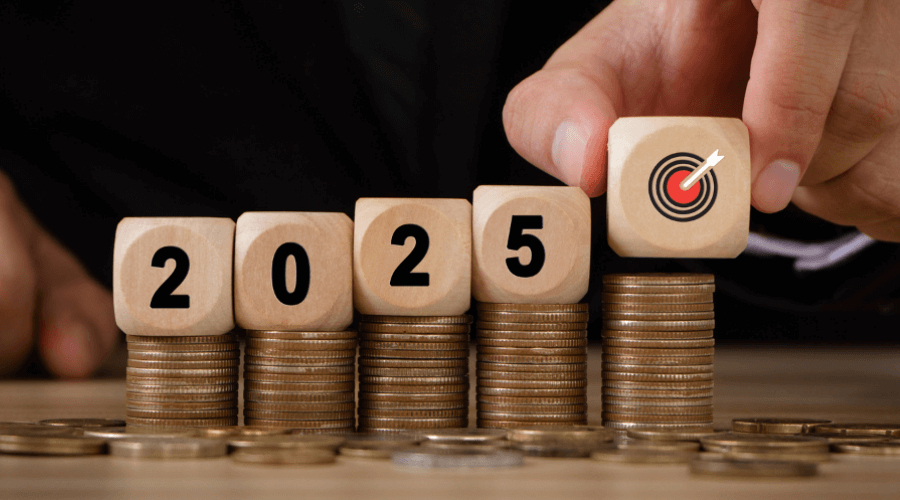Let’s face it — keeping track of your spending can be tricky. Between bills, groceries, and unexpected expenses, saving money often feels impossible. But with a few strategic budgeting hacks, you can take control of your finances, grow your savings, and stress less about money. Whether you’re just starting your personal finance journey or looking to level up your budgeting game, these practical money-saving tips can make a real difference in your financial life.
Read Forbes’ expert guide on mastering your budget
1. Use the 50/30/20 Rule to Simplify Your Budget
One of the easiest budgeting hacks for beginners is the 50/30/20 rule. It divides your income into three clear categories: 50% for needs, 30% for wants, and 20% for savings or debt repayment. This structure keeps your finances balanced while allowing flexibility for fun spending.
According to NerdWallet, this method is effective because it prioritizes saving without feeling restrictive. You can even automate your savings to ensure the 20% portion is transferred into your savings account as soon as you’re paid.
Over time, this simple habit helps build long-term stability — perfect for anyone serious about personal finance.
Pro Tip:
Set up automatic transfers into a separate savings account right after payday. You’ll save without even thinking about it.
See our internal guide to mastering personal finance (example.com)
2. Track Every Expense — Even the Small Ones
You can’t manage what you don’t measure. That’s why one of the smartest money-saving tips is to track every expense — no matter how minor. Apps like Mint, YNAB, and Personal Capital make it easy to monitor where your money goes each month.
Many people underestimate how much they spend on “invisible” purchases like takeout or subscriptions. By tracking expenses, you’ll uncover hidden leaks in your budget and adjust before things spiral.
According to Bankrate, consistent tracking can help households save 10–15% more monthly by promoting awareness and accountability.
Comparison:
Skipping daily coffee at $5 each day saves over $100 per month — that’s $1,200 per year, enough for a vacation or an emergency fund boost!
3. Automate Your Savings and Bills
Automation is one of the most effective budgeting hacks for busy people. When you automate savings and bill payments, you eliminate late fees, reduce stress, and make financial discipline effortless.
Most banks and apps let you set recurring transfers to savings or investment accounts. This ensures you “pay yourself first,” a principle Investopedia calls the cornerstone of sound financial planning.
Set your bills on autopay to avoid missing deadlines, but always monitor your accounts monthly to ensure accuracy. Automation doesn’t mean neglect — it means consistency.
Pro Tip:
Set your automated savings for payday, not the end of the month. It’s easier to save before you spend.
4. Cancel Unused Subscriptions
How many streaming or subscription services are you really using? Canceling forgotten subscriptions is one of the easiest money-saving tips that can instantly free up cash. Apps like Rocket Money (formerly Truebill) and Bobby can help you identify recurring charges and cancel unwanted ones with a tap.
According to CNBC, the average American spends over $200 monthly on subscriptions — much of it unnoticed. That’s nearly $2,400 a year!
Audit your accounts every few months. Cancel what you don’t use, downgrade plans when possible, and enjoy immediate savings.
Pro Tip:
Use one credit card for all subscriptions so it’s easy to review recurring charges and cut what’s unnecessary.
5. Meal Plan and Cook at Home
Food spending is one of the most underestimated budget categories. Cooking at home is a classic but powerful budgeting hack for cutting costs without sacrificing nutrition. According to USA Today, meal planning can save households up to $1,500 per year.
Start by planning weekly meals, buying in bulk, and preparing lunches for work. Apps like Mealime or Eat This Much can help you create meal plans and shopping lists instantly.
Compare this to eating out — a $10 lunch every weekday adds up to $200 monthly. Cooking at home isn’t just healthier; it’s a smart personal finance move that keeps money where it belongs — in your pocket.
6. Use Cashback and Reward Apps
Want to earn while you spend? Cashback and reward apps are practical budgeting hacks that turn everyday purchases into savings. Tools like Rakuten, Ibotta, and Honey give you cashback or discounts on groceries, shopping, and travel.
As The Guardian highlights, using cashback programs consistently can yield hundreds in annual savings. Combine them with credit card rewards for maximum benefit.
Just remember: don’t buy things you don’t need for the sake of rewards. Treat cashback as a bonus, not motivation to overspend.
Example:
Spend $200 monthly on groceries through a 3% cashback app — that’s $72 back per year for doing nothing extra.
7. Shop Smarter — Compare Prices Online
Before buying anything, spend two minutes comparing prices. Price-comparison extensions like CamelCamelCamel (for Amazon) or PriceGrabber automatically find the best deals across stores.
These tools are essential money-saving tips for online shoppers. You’ll avoid overpaying and even track historical prices to buy when items are cheapest. According to Consumer Reports, price-checking before checkout can cut costs by up to 25% on average.
Pro Tip:
Use browser extensions like Honey or Capital One Shopping to apply coupons automatically during checkout.
Explore our internal guide on smart online shopping habits (example.com)
8. Build an Emergency Fund
Having an emergency fund is one of the most overlooked budgeting hacks. It prevents debt and financial stress when unexpected expenses arise. Experts recommend saving at least three to six months’ worth of living costs in a separate, accessible account.
According to Fidelity, an emergency fund is a safety net that helps you avoid relying on credit cards or loans. Even saving a few dollars weekly adds up over time.
Set a realistic goal and start small — automate $20 to $50 weekly into a high-yield savings account. Over time, you’ll create financial peace of mind and long-term resilience.
9. Practice the 24-Hour Rule Before Purchases
Impulse buying is a savings killer. The 24-hour rule is a psychological money-saving tip that helps you make better financial decisions. Before buying anything non-essential, wait 24 hours. Often, the desire fades, and you realize you didn’t really need it.
Psychologists confirm that delayed gratification strengthens self-control — a key element of smart personal finance. This technique helps prevent emotional spending, especially during online sales or social media ads.
If you still want the item after a day, it’s likely a justified purchase. But in most cases, you’ll move on — and your wallet will thank you.
Pro Tip:
Unsubscribe from marketing emails and shopping alerts to reduce temptation altogether.
10. Review and Adjust Your Budget Monthly
Even the best budgeting hacks won’t work if you don’t review them. Your income, expenses, and goals change over time — your budget should too. Schedule a “money check-in” at the end of each month to see where you can improve.
Use tools like Tiller Money or Excel Budget Templates to review your progress. Identify patterns: are you overspending in certain categories? Can you increase savings next month?
According to Money.com, people who review their budgets regularly are twice as likely to meet financial goals. Consistency turns budgeting into a habit — and habits build wealth.
Conclusion: Small Changes, Big Financial Wins
Saving money doesn’t require drastic sacrifices. With these 10 practical budgeting hacks, you can master your personal finance without giving up what you love. From automating savings to cutting small expenses, every smart choice adds up over time.
Remember: financial success isn’t about earning more — it’s about managing better. Start applying these money-saving tips today and watch your savings grow month after month. Small, consistent actions are the real secret to long-term financial freedom.
Discover more ways to boost your personal finance habits (example.com)




